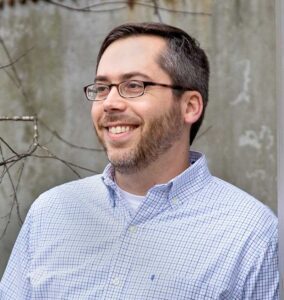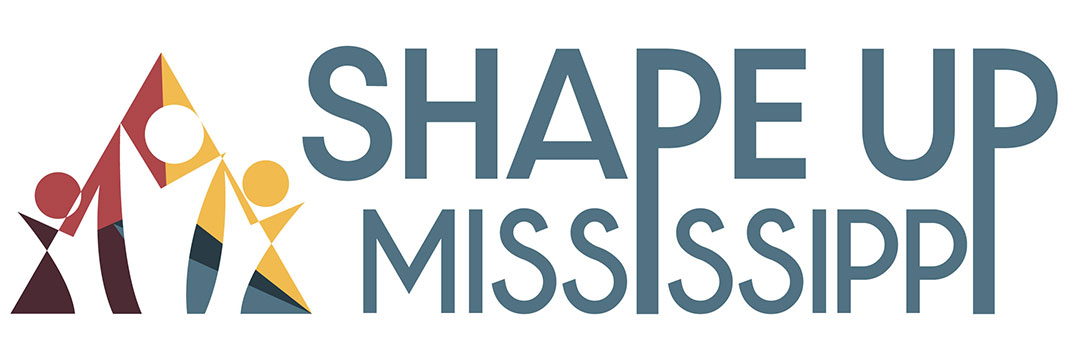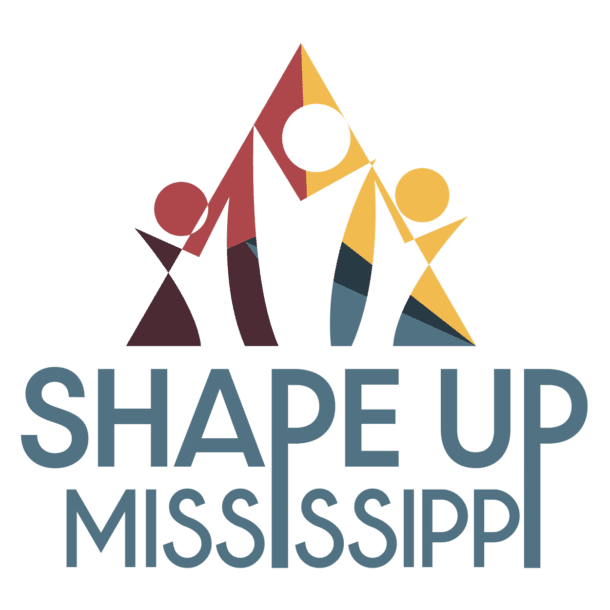Kuhn Memorial Civil Rights Park to engage Vicksburg in community storytelling
On the city’s Bicentennial, a local group is revitalizing the historic park
By Jim Beaugez
On the grounds of a former hospital in one of America’s most historic cities, a community is reclaiming the past and working to foster a future where opportunity, health and wellbeing are abundant.
Local leaders in Vicksburg, Mississippi, hope upcoming renovations to the Kuhn Memorial Civil Rights Park, located on the former site of Kuhn Memorial Hospital, will foster as much positive impact and inclusivity as the community hospitals that operated here for more than a century.
“The overall vision for the park is to be able to recognize and celebrate the legacy and life of those people who have come before us,” said Vicksburg mayor George Flaggs Jr.
Over the past year, Shape Up Mississippi has led a movement to engage Vicksburg in an inclusive narrative rooted in Vicksburg’s Bicentennial celebration using memory and storytelling. That effort materialized in the revitalization of Kuhn Memorial Civil Rights Park, and with a $50,000 investment from Shape Up Mississippi and the backing of city leadership, Kuhn Memorial Civil Rights Park is being reimagined as an immersive historical and wellness destination.
“With our work at the Kuhn Memorial Civil Rights Park, we aim to improve community conditions and advance health equity by providing a welcoming outdoor space for everyone and offering access to nature, which helps reduce stress and improve mental health,” said Linda Fondren, executive director of Shape Up Mississippi and Catfish Row Museum.
And Fondren has a blueprint for all of it.
A winding, quarter-mile walking trail at Kuhn Memorial Civil Rights Park will feature 20 interpretive signs created in partnership with historian Dr. Beth Kruse, who came to Vicksburg through a Mellon Foundation fellowship to research topics like the Vicksburg Massacre and the legacy of Peter Crosby.
Each post includes QR codes leading visitors to a digital timeline of Vicksburg’s Civil Rights history, transforming the park into a living museum and teaching tool. Along the trail, a Knowledge Tree sculpture, designed by local high school students, will serve as a symbol of growth rooted in truth.
“Imagine a tall tree with leaves that features intergenerational quotes from our storytelling workshops,” Fondren said. “One quote from a grandmother reads, ‘Education starts at home around the kitchen table,’ while a Warren Central High School student shares, ‘If you have knowledge, let others light their candles in it.’”
Near the park’s center, the Celebration, Reflection, and Wellness Wall will rise from the same bricks that once framed the hospital itself. Salvaged during its demolition, the bricks now serve as memory markers. Citizens will be able to buy and have a brick inscribed as part of a fundraising campaign to connect residents personally with the site.
The park will also honor Civil Rights leader Myrlie Evers, who was born in Vicksburg, with a bust sculpture to anchor the park’s mission of courage and justice. Evers, a journalist, activist and widow of slain NAACP leader Medgar Evers whose legacy spans decades of advocacy, represents the unshakable resolve that helped define the Civil Rights Movement and continues to inspire Vicksburg’s evolution.
“We chose Myrlie Evers for the sculpture because of her incredible legacy as a Civil Rights leader and her unwavering commitment to justice and equality,” Fondren said. “She embodies the spirit of courage and resilience that we want to celebrate in our community. Her story is not just a part of our history — it’s a powerful reminder of the ongoing struggle for Civil Rights and the importance of standing up for what is right.”
In addition, a mural depicting this era in Vicksburg history will bring bold visuals to the city’s colorful history, while a new herb garden will reconnect visitors with the power of nature and self-care in the spirit of wellness, healing and tradition.
The revitalization of Kuhn Memorial Civil Rights Park is the culmination of a years-long long effort by Fondren and Shape Up Mississippi to use storytelling at the heart of community health.
In 2023, Fondren attended the Culture of Health Prize Celebration in New Mexico and found new energy for cross-sector collaboration. She brought her ideas to Mayor George Flaggs, Michele Connolly of United Way of West Central Mississippi, and Community Development Director Jeff Richardson, and by January 2024, those talks focused on how Shape Up Mississippi could support the city’s Bicentennial and help breathe life back into Kuhn Memorial Park.
“The Kuhn Memorial Civil Rights Park improves community conditions and advances health equity by providing a welcoming outdoor space for everyone,” Fondren said. “Plus,” she added, “it encourages social interaction by bringing people together to build strong community ties, and active lifestyles to reduce stress and improve overall community health.”
Through partnerships with Catfish Row Museum, Vicksburg National Military Park and local organizations, Shape Up Mississippi launched Vicksburg Voices, a storytelling initiative that became the heartbeat of the effort.
“Untold Stories,” a series of public events hosted by the organization, brought together award-winning journalists like Jerry Mitchell, historian Dr. Beth Kruse, and filmmaker Dr. Wilma Clopton. Together, they facilitated intimate conversations that surfaced long-buried narratives — stories of civil rights marches, voter registration drives, African-American educators who built schools from scratch, and families who endured inequity while fighting for dignity.
Shape Up Mississippi’s approach also included cooking demonstrations hosted in tandem with Bicentennial events, which became entry points for community education, using shared meals to spark conversations around heritage and well-being.
Instead of offering a sanitized history of Vicksburg, the Kuhn Memorial Civil Rights Park invites complexity and honors those who were left out of the story for too long, providing a framework for understanding how their absence shaped the present.
Marking that past are two new historical markers by the Mississippi Department of Archives and History. One will be placed at the park itself to remember Kuhn Memorial Hospital, while a marker honoring Peter Crosby, a Black elected sheriff who was a subject of the Vicksburg Voices Untold Stories series, will be placed at the Warren County Courthouse. Crosby’s removal from office by a white mob in 1874 started the Vicksburg Massacre, which led to the deaths of up to 300 Black citizens and ended Reconstruction in the city.
“You didn’t read that in your history book in the 1960s, 1970s, and even the 1980s,” says Kruse, “because it was intentionally left out [in favor of] a lost-cause, simplified version — more a heritage history, which is a public memory and not an inclusive, true history that incorporates all the parties that were involved.”
The park’s revitalization, aligned with the city’s 200th anniversary, couldn’t be more timely, Fondren said. As Vicksburg reflects on two centuries of struggle and survival, it also has a chance to make the future better.
The group’s work — built on the foundations of collaboration and memory — demonstrates how storytelling, when paired with community engagement, can dismantle structures of exclusion and build new systems rooted in equity.
“This isn’t just about fixing up a park,” said Fondren. “It’s about creating a space where everyone feels valued and included. We have a chance to share Vicksburg’s story by exploring our history of Civil Rights and the Civil War while also promoting health and education and boosting our economy.”
Article Published in The Vicksburg Post | May 22, 2025

Jim Beaugez
Jim Beaugez has written about traditional and contemporary American music and culture for The New York Times, Rolling Stone, Smithsonian, Garden & Gun, Oxford American and other media outlets.

